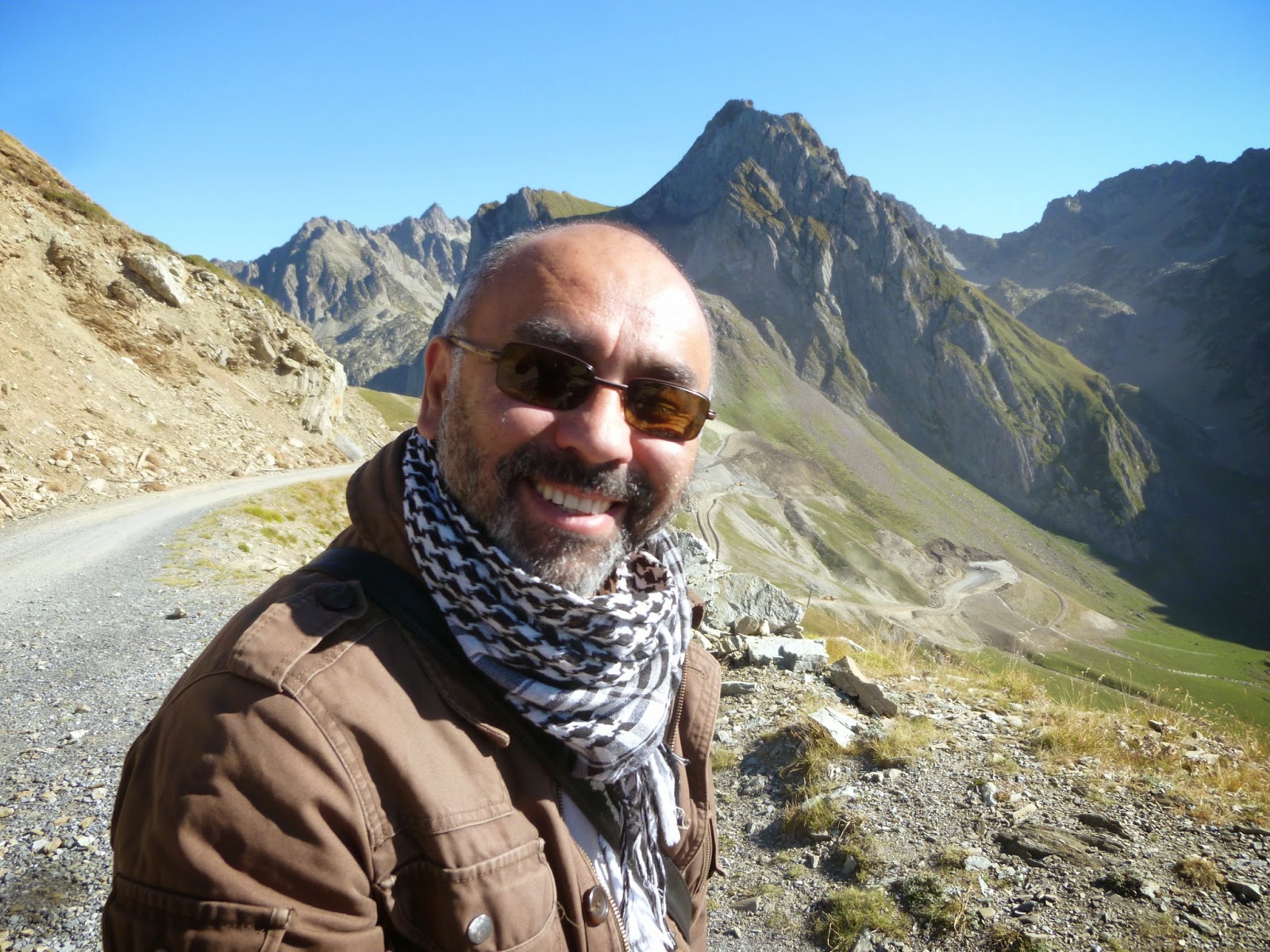If God is everywhere, then everywhere must be holy, no?
Sometimes, all you have to do is shut up, and there it is. There's a shimmer on all kinds of things, even ugly things. That's God.
I keep a diary. In it are listed many, many holy moments. (If I don't write them down, I tend to forget them.) This has been a holy year.
Yesterday on the road to Paco's vineyard, three owls lifted out of the ditch and across our path. They vanished into the fog. They were perfectly silent.
With Laurie in July, on a cow-path in a mountaintop meadow near Penalba, with Ponferrada far down in the distance. We stopped and sat against the steep hillside. I pulled off my boots and stretched out my toes. I felt my feet smile.
With three beloved people in a stone house in the mountains in France, staring up at the stars in the back garden, laughing and exulting over divine cheese and wine and Rachmaninoff on the radio. "It's 3 o'clock in the morning!" someone said. We all fell silent. We all looked at one another, then smiled. It was God we felt in the room. God was there.
In a cave with hands painted on the walls thousands of years ago.
In my car, stopped in the middle of a terrific thunderstorm, the rain roaring on the roof and nothing at all visible outside.
In my arms while Murphy Cat died, in the horror of his suffering, and the tenderness of Mo cat and Rosie dog, who came and touched his body with their noses once he finished. How Paddy's hands tucked the towel 'round his head, and so softly laid the dirt over him out back.
How Paddy's hands put ends to suffering hens, because I just cannot do that myself. Paddy is not godless, no matter what he says. He buries our dead. God is with him.
God is with me at church, as you'd expect. I taste him at Communion, I feel the rush of him in my pew. I heard his voice in the canary songs, and the crows' sour voices, too.
I hear him in the poetry of priests. In February I read out the poetry myself, in English, in my deep Scripture Voice, in the great cathedral shrine at Santiago de Compostela, I stood and recited the Gospel Truth as winter rain poured through the roof above, and the holy ghost moved all around our side-chapel of St. Andrew.
He came too, in May, to Crystal Gardens Banquet Facility in South Detroit, when I read scripture at a somewhat wrong moment of my son's Muslim wedding feast. I was forgiven. I think I was actually heard.
I felt God in September outside the Bar Luna in Sahagun, just after I had an impacted molar pulled. I had lost consciousness, frightened the dentist, gave myself a scare, too. I was stunned, bloody, The anesthesia was wearing off. The waiter brought me a shot of Four Roses and a glass of draft beer.
I drank them down, and felt the strength of ten men roar into my being. God with us!
Sometimes God is obvious. He came with the strength of two men late last Winter, when I planted a tree. It was a big tree, too big for me to handle on my own, a meaningful tree, in memory of a fallen pilgrim. I stopped and stilled my bothered-ness and asked for help. And up the trail came two strapping pilgrims, who helped me wrestle the tree into the hole and stand it straight and fill in the dirt around it. They even snapped photos!
He sat in my hands this summer when I treated a pilgrim with a ruptured Achilles tendon. The man was a doctor. He knew what was wrong. He was ready to go home. And in the morning, well... I still don't like to say it. The tendon was whole again. The tear had repaired in the night. The pilgrim headed out onto the trail rejoicing. I was stunned. I still am.
But when I think of where I see God, and I think mostly of mundane things, daily things. St. Teresa of Avila, a great Christian mystic from here in Castilla, told the Grand Inquisitor that "God lives in the kitchen, among the pots and pans."
This year I saw God in mud-and-straw adobe bricks, in my sudden outburst of properly conjugated preterite imperfect verbs. I saw him in the faces of Antonio from Badajoz, Miguel Angel from Paris, Andy from Birmingham, Kathy from San Francisco. I saw him at Thanksgiving in Madrid, and here in Moratinos, in the fog, in the ditches, the plaza, the bodegas.
He's here. He brings holiness with him.
And if we just show up, he makes us holy, too.

















